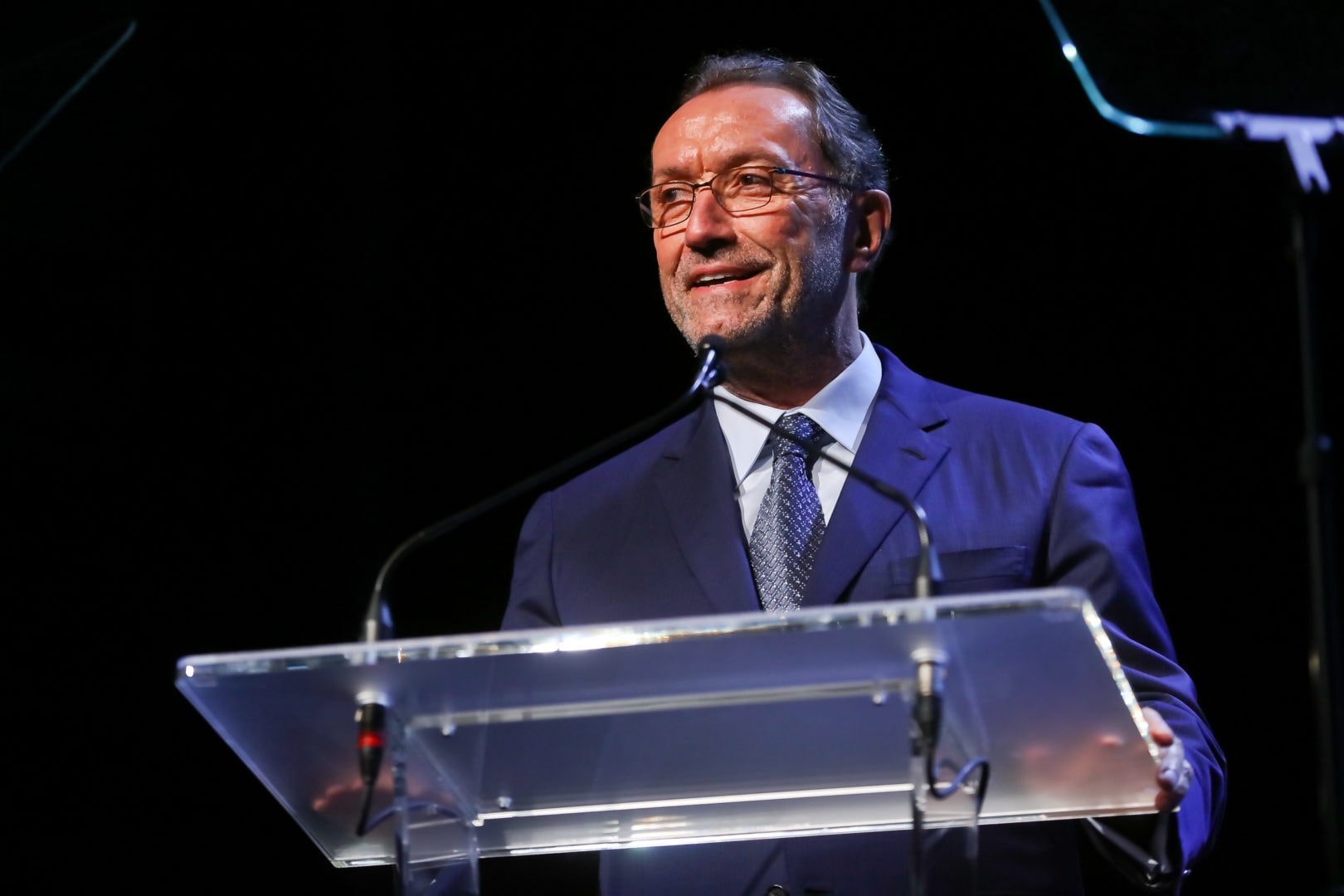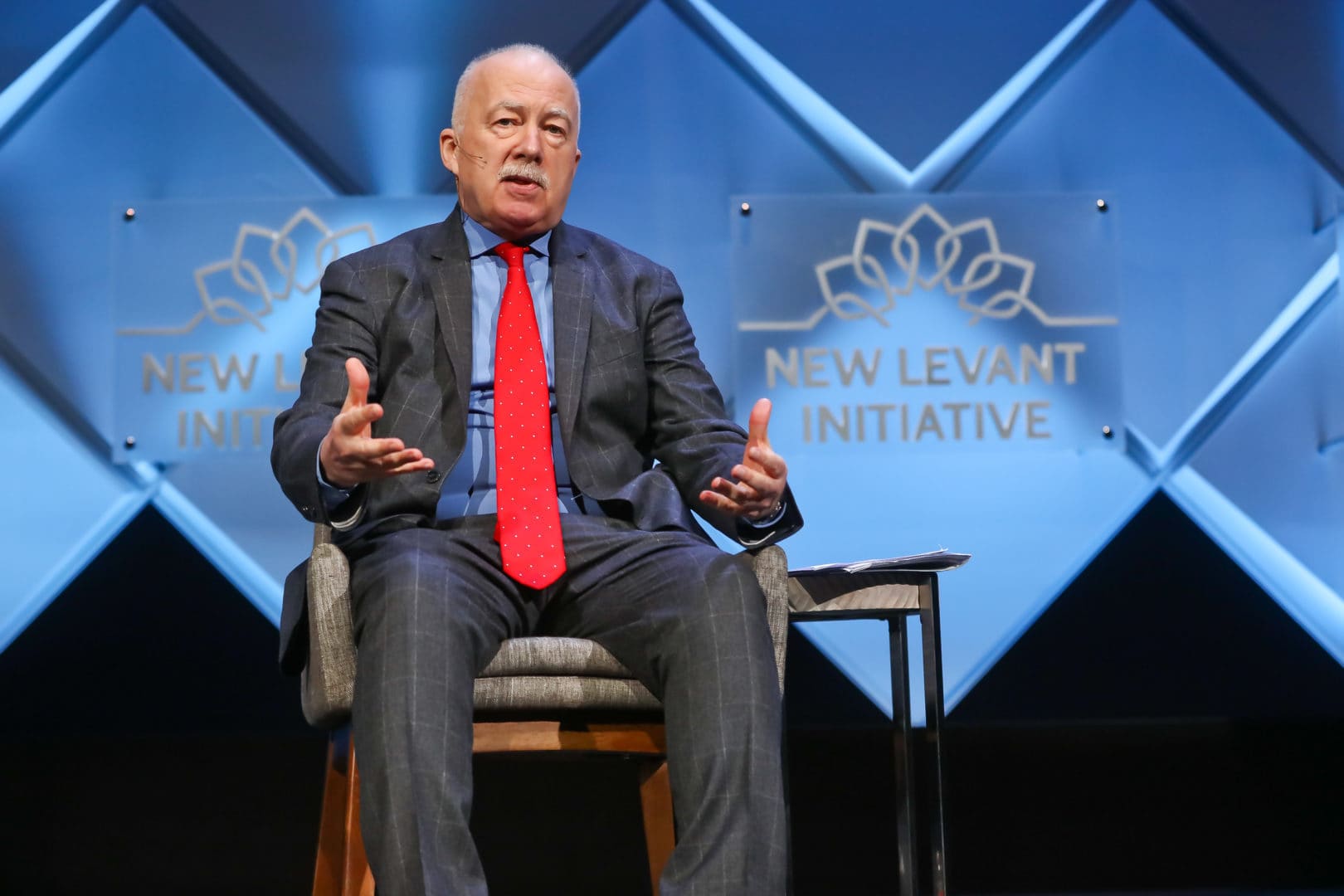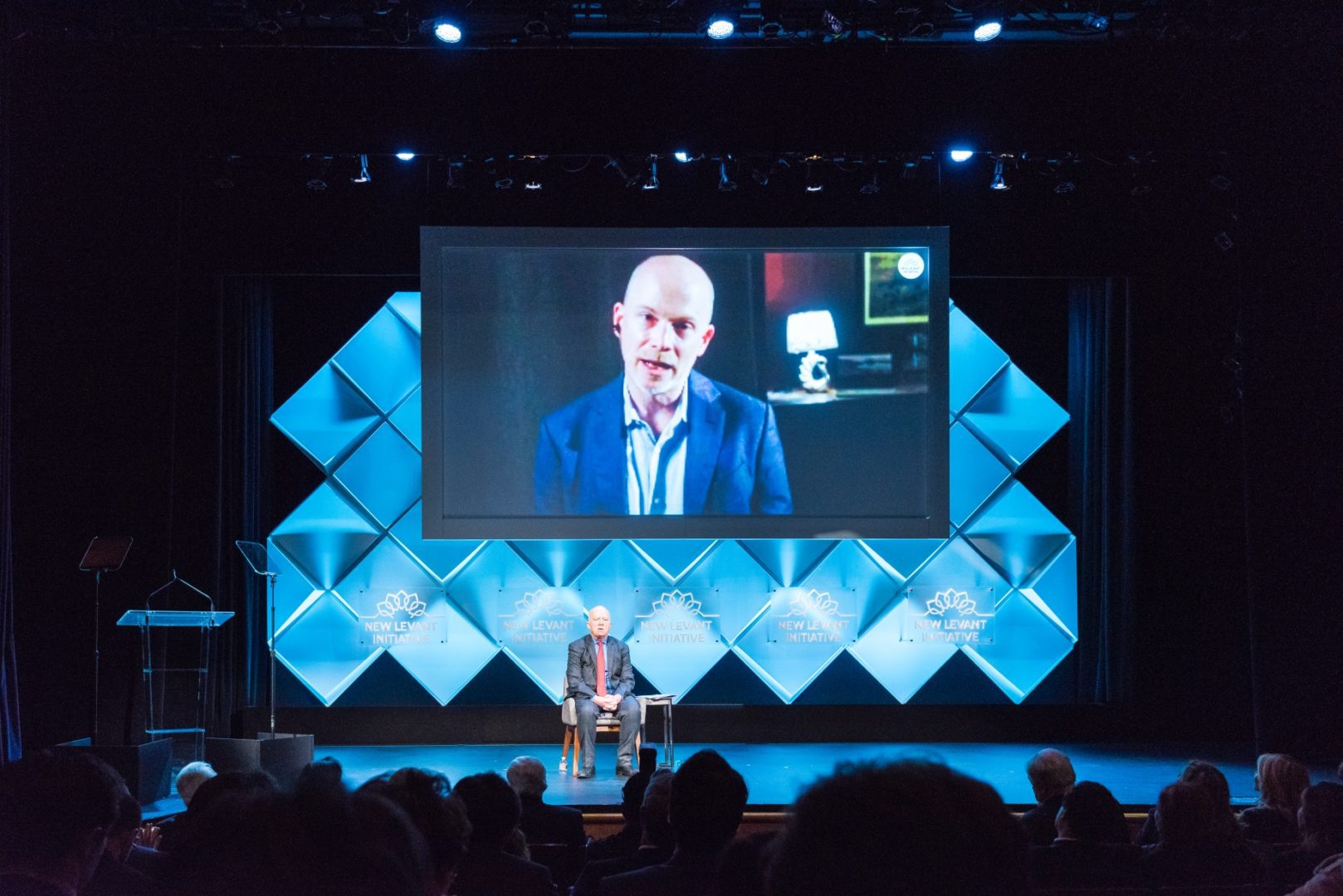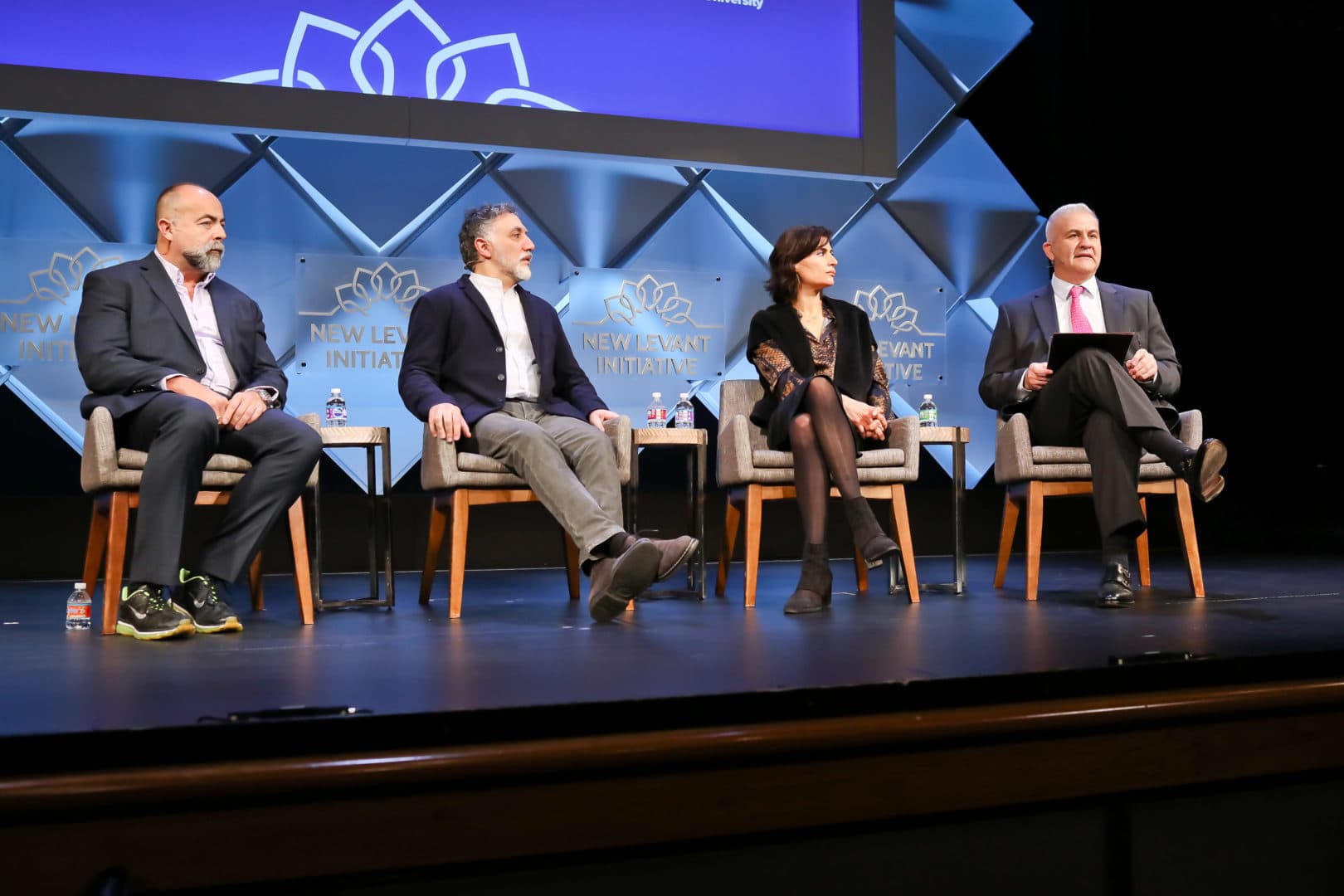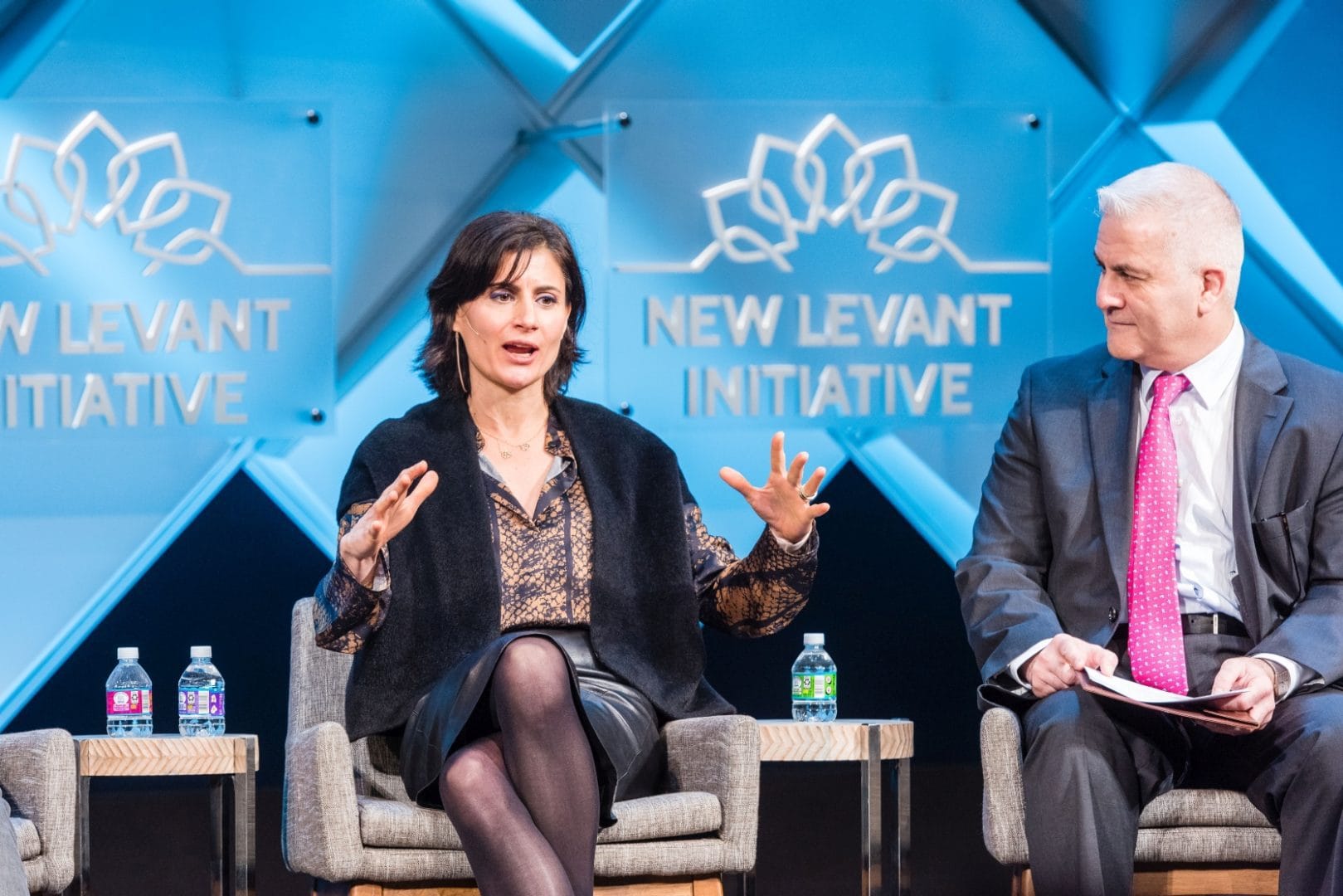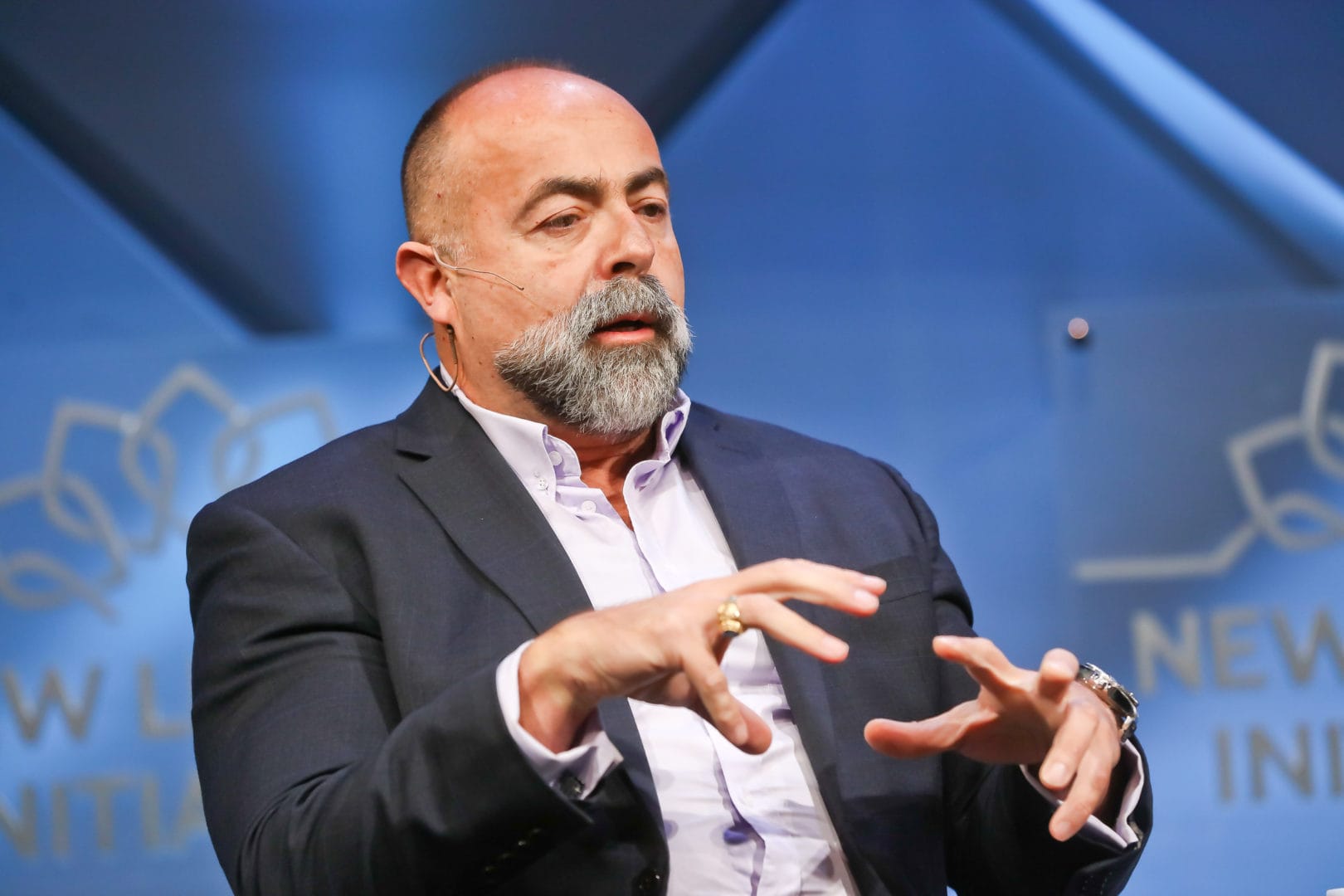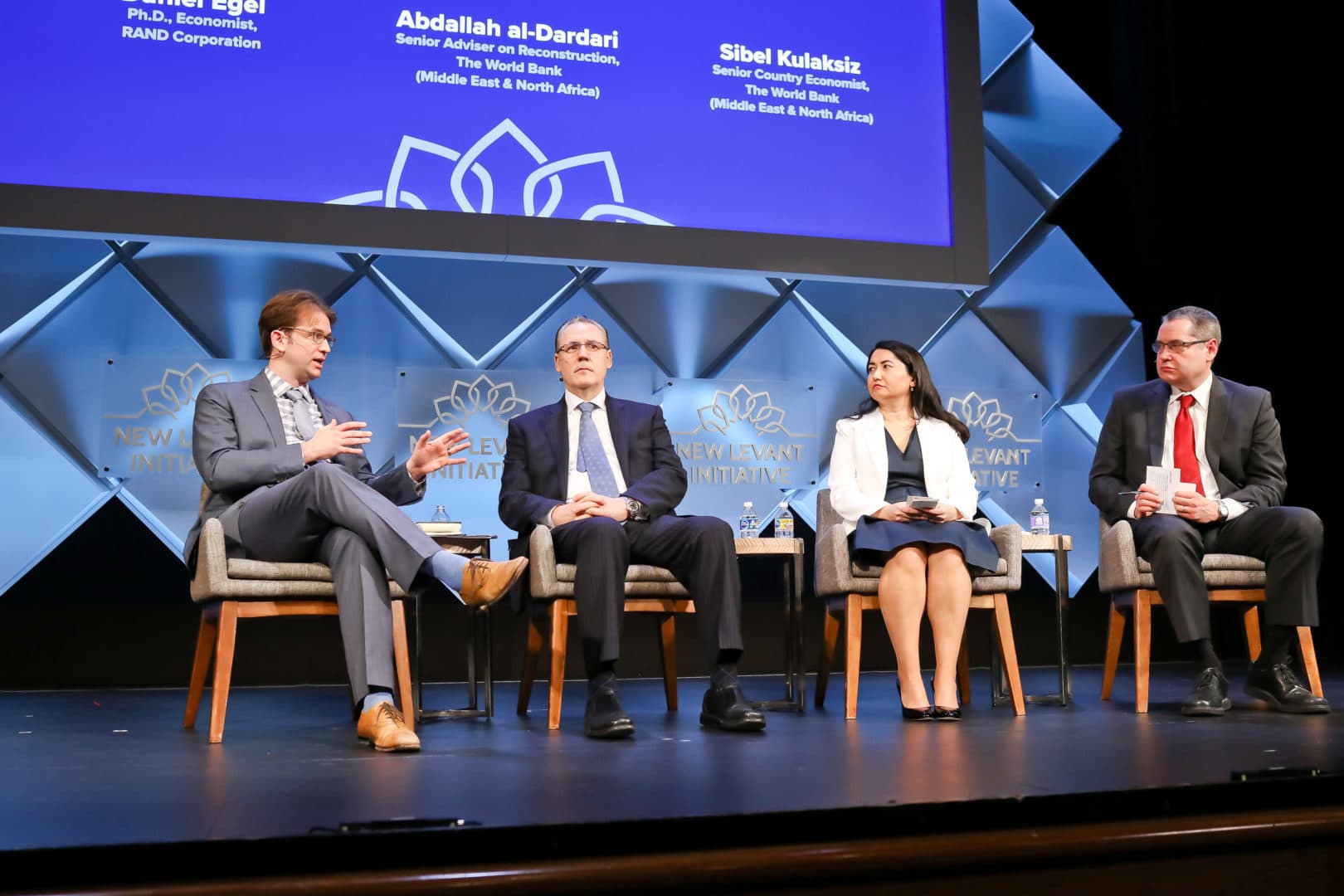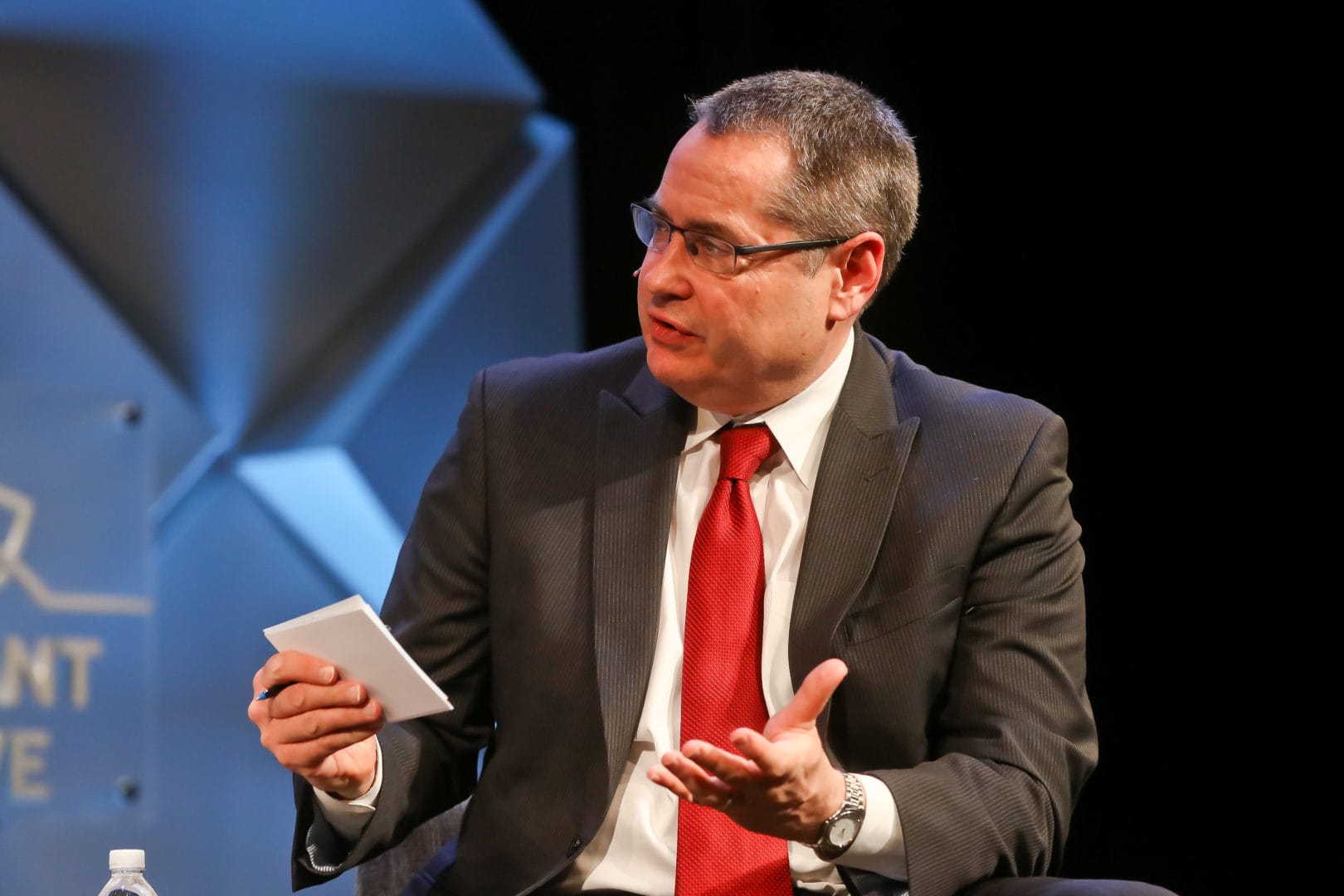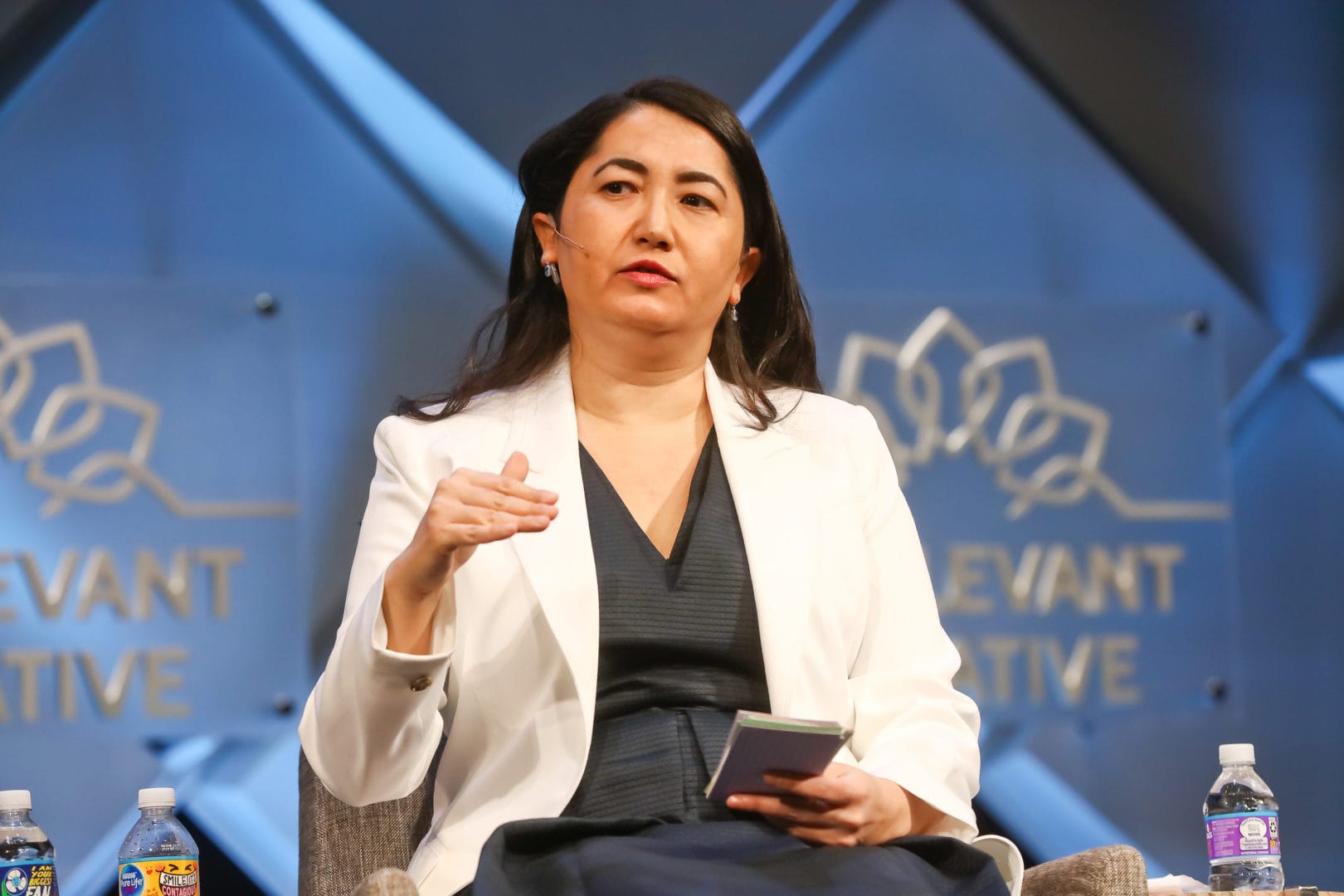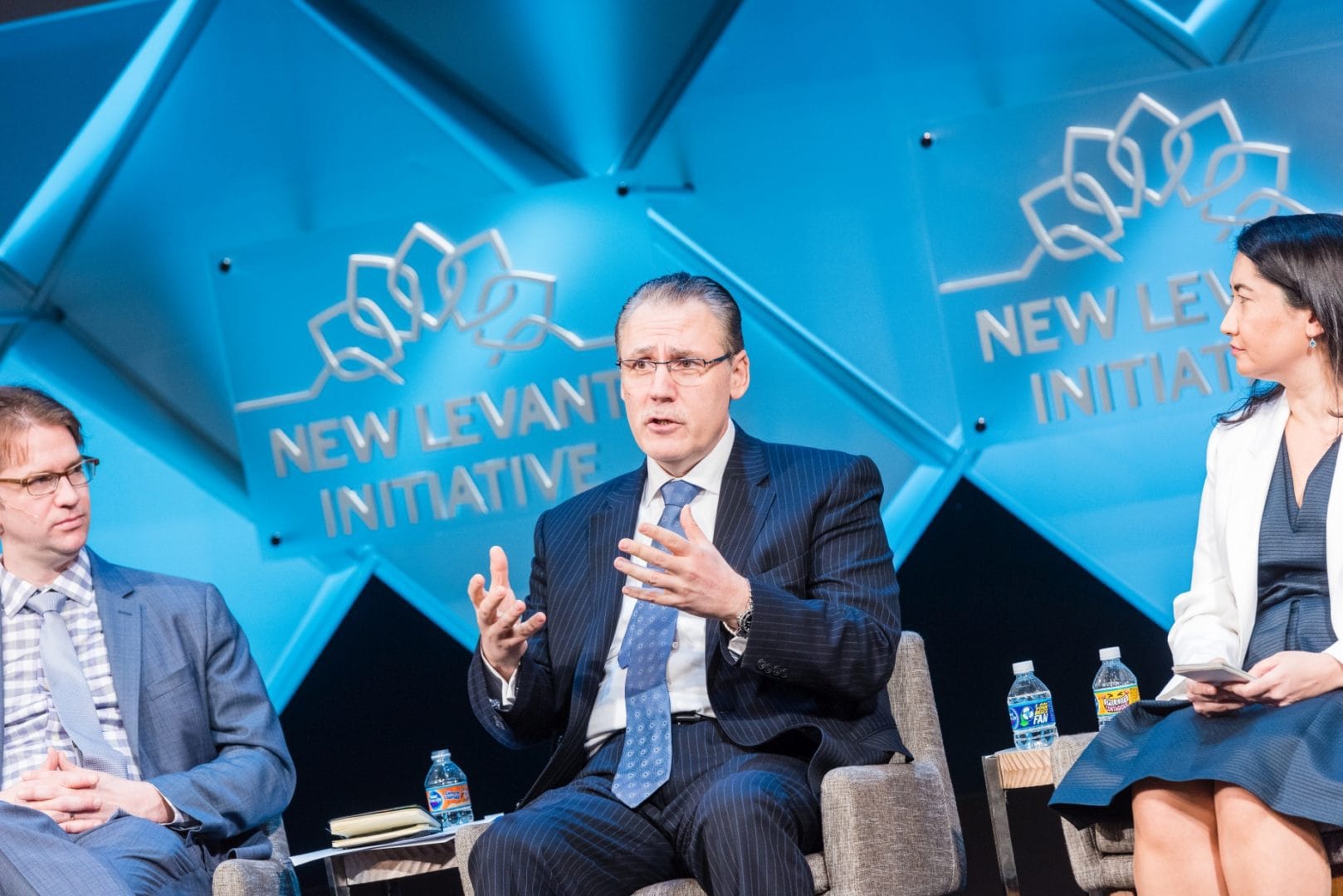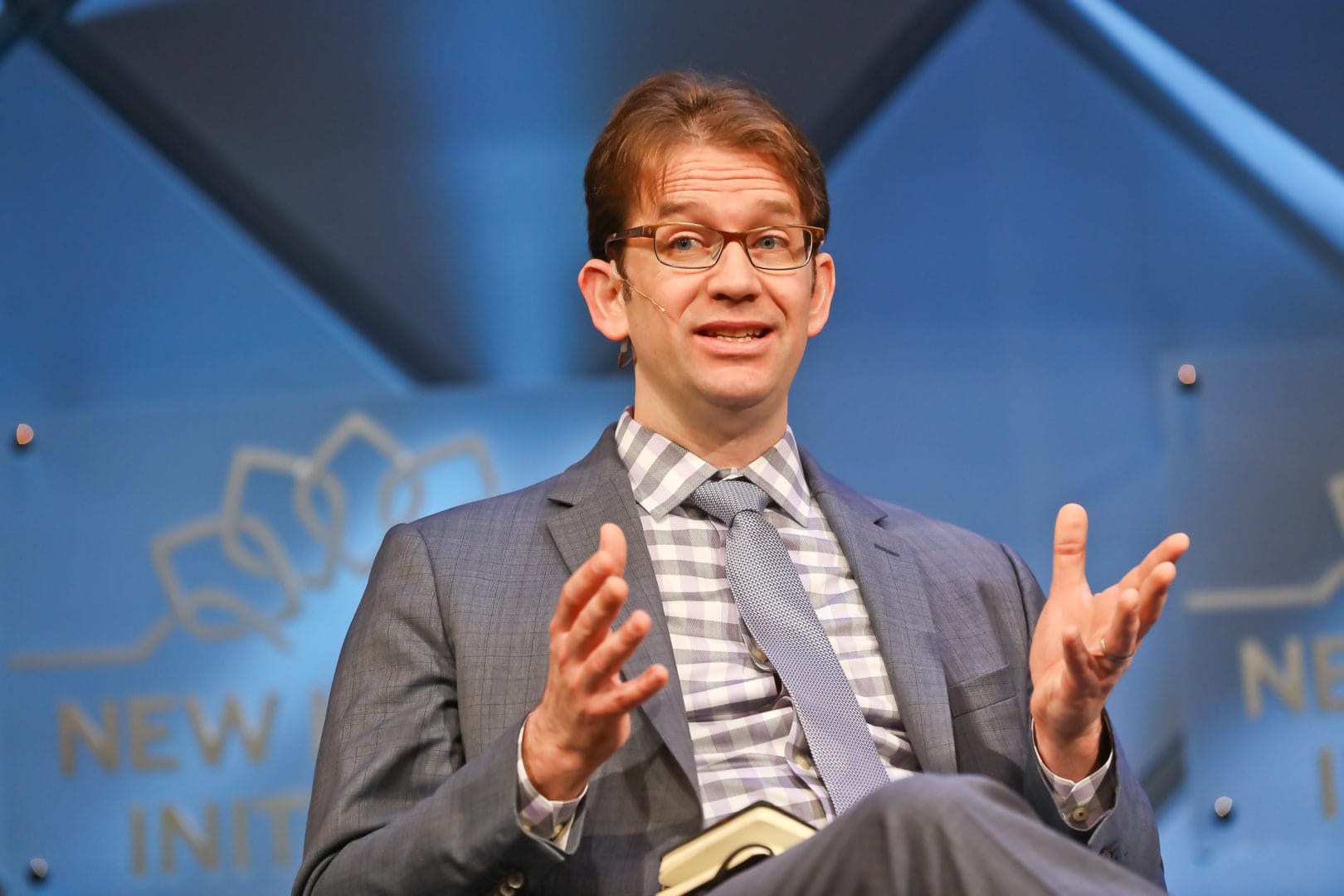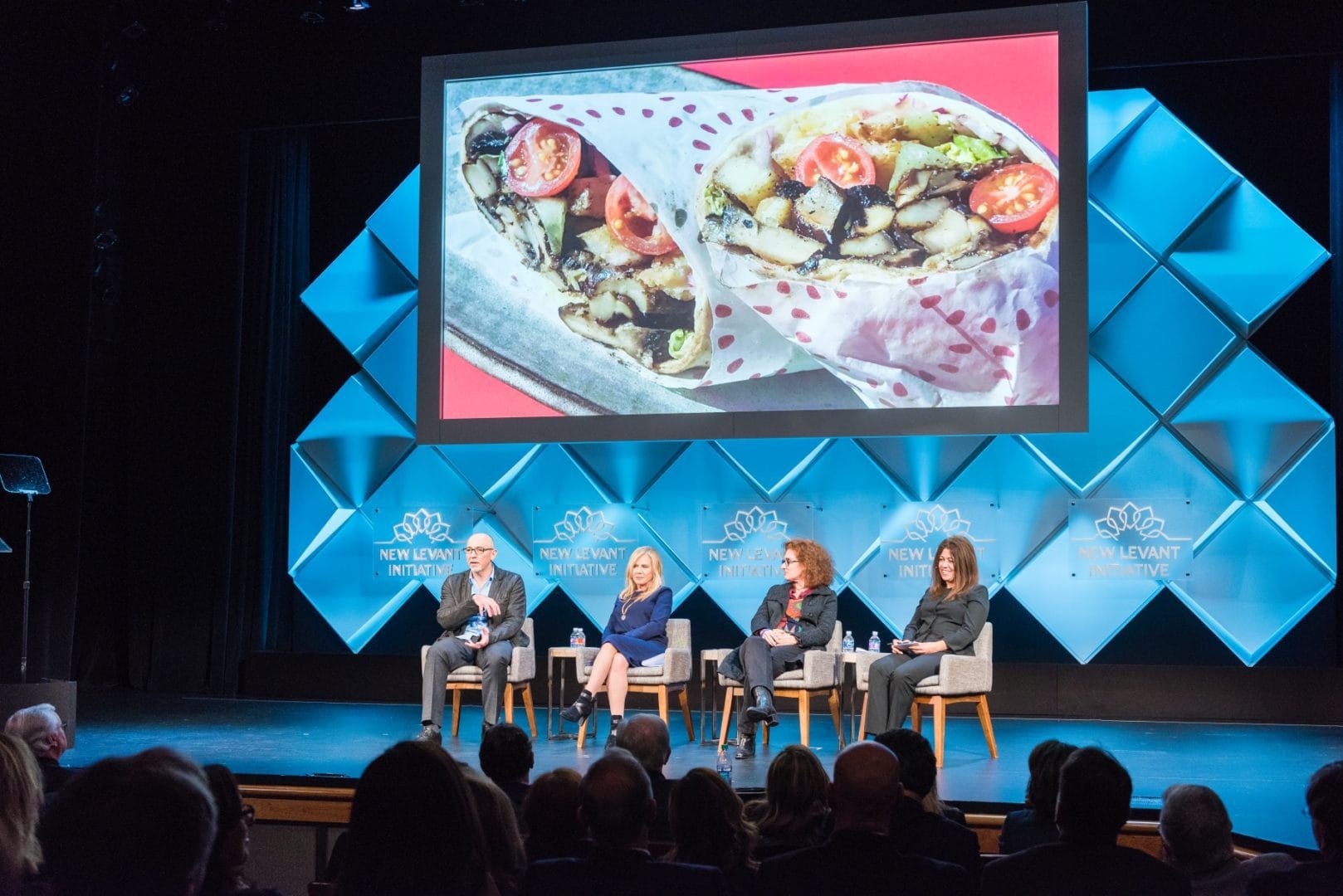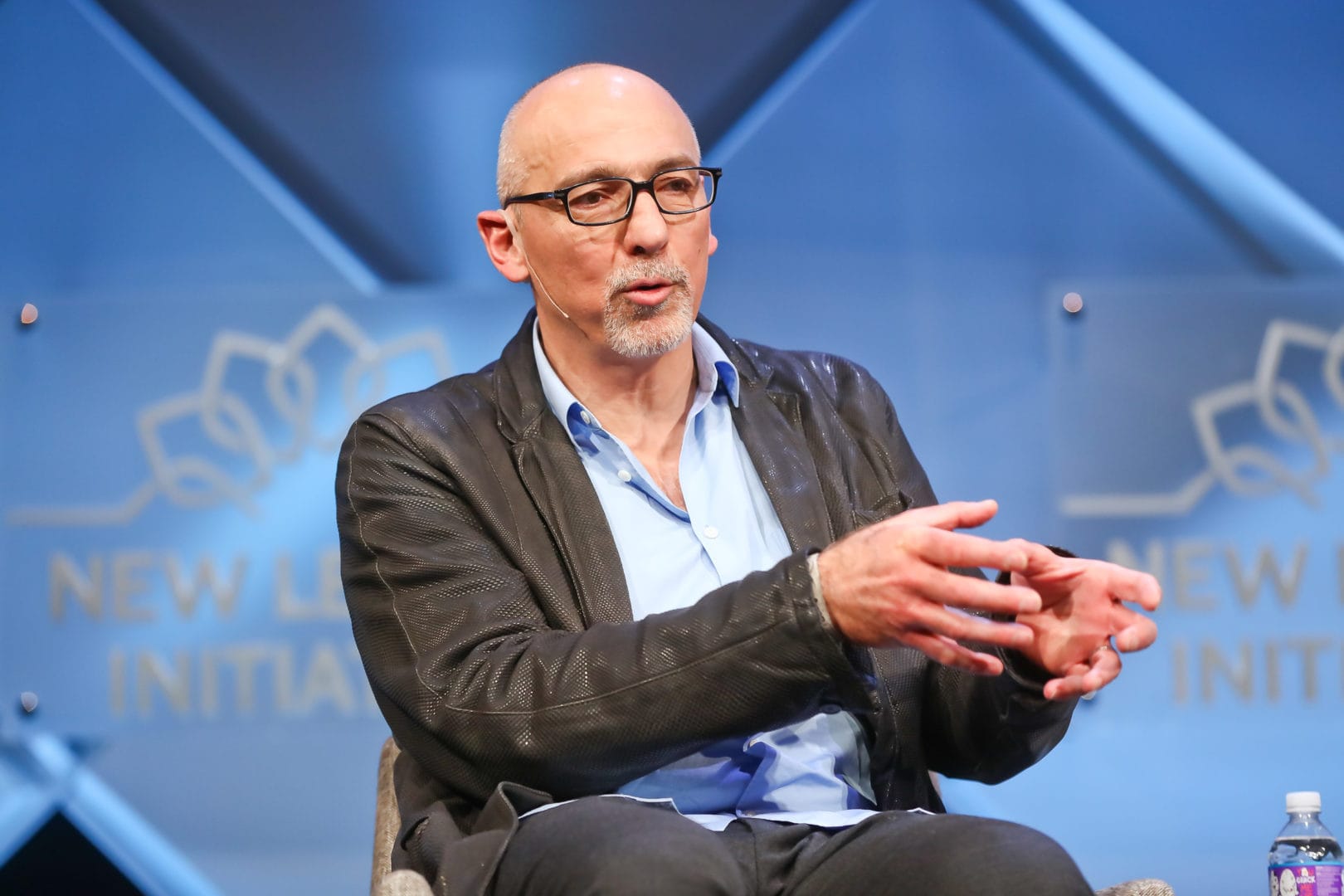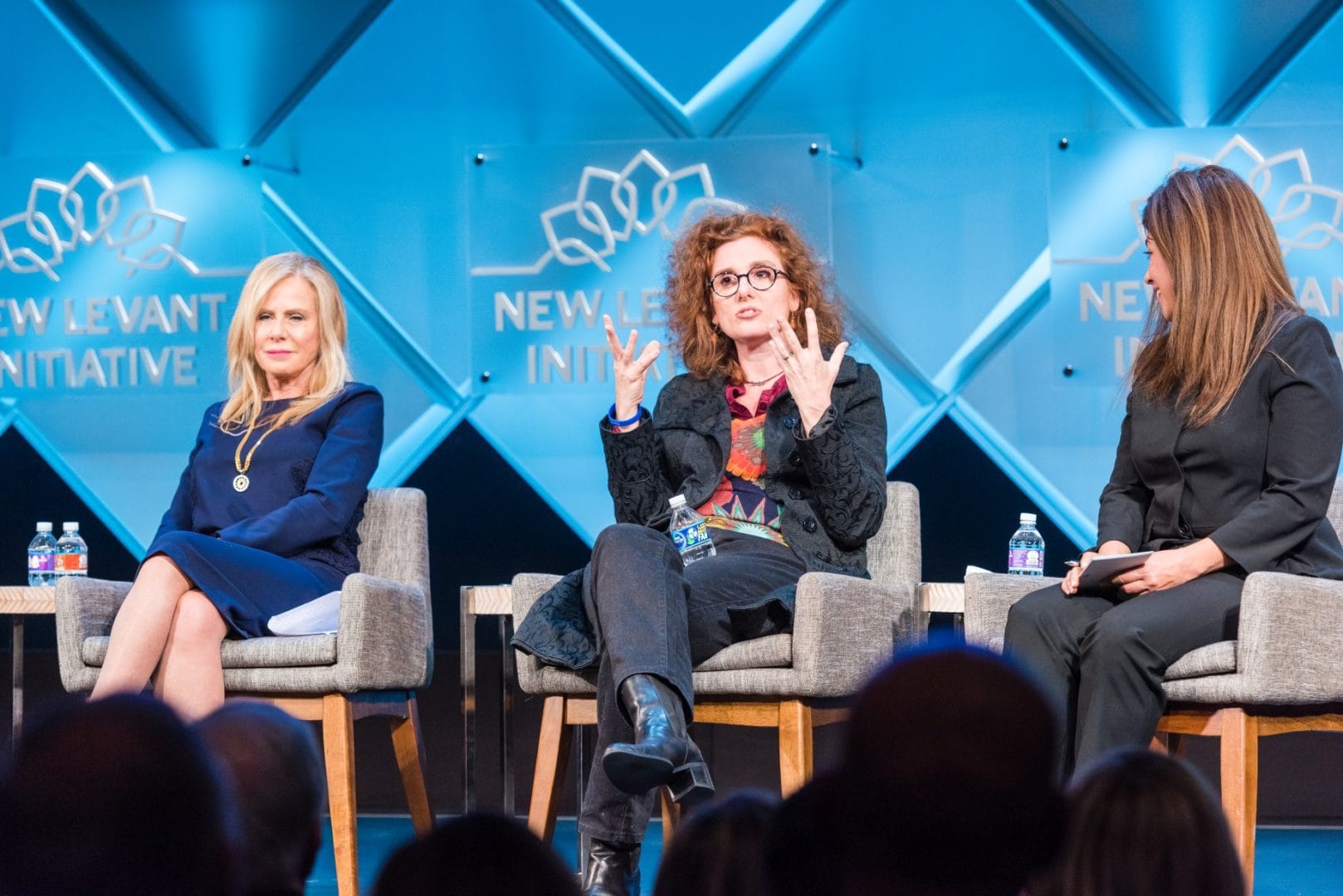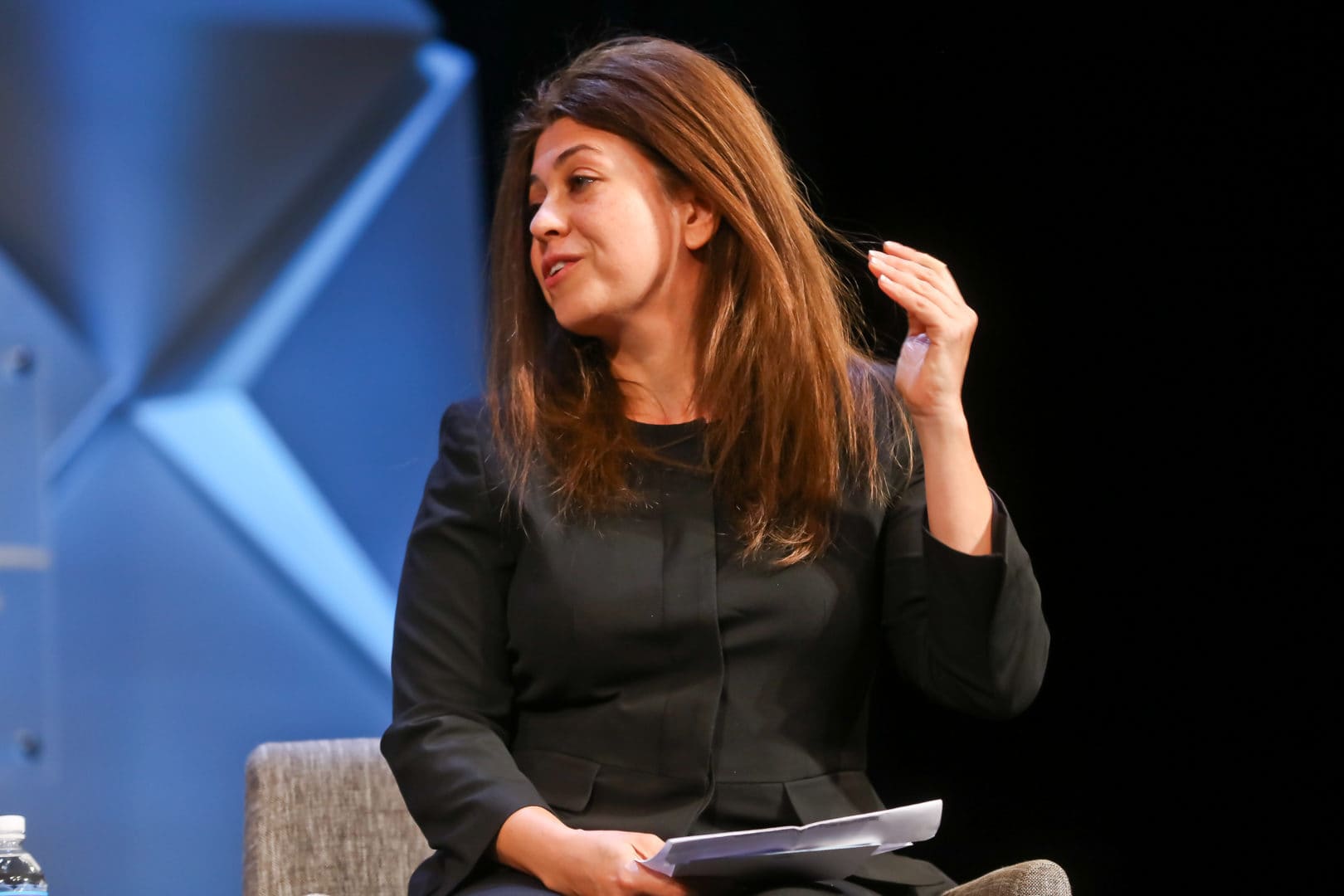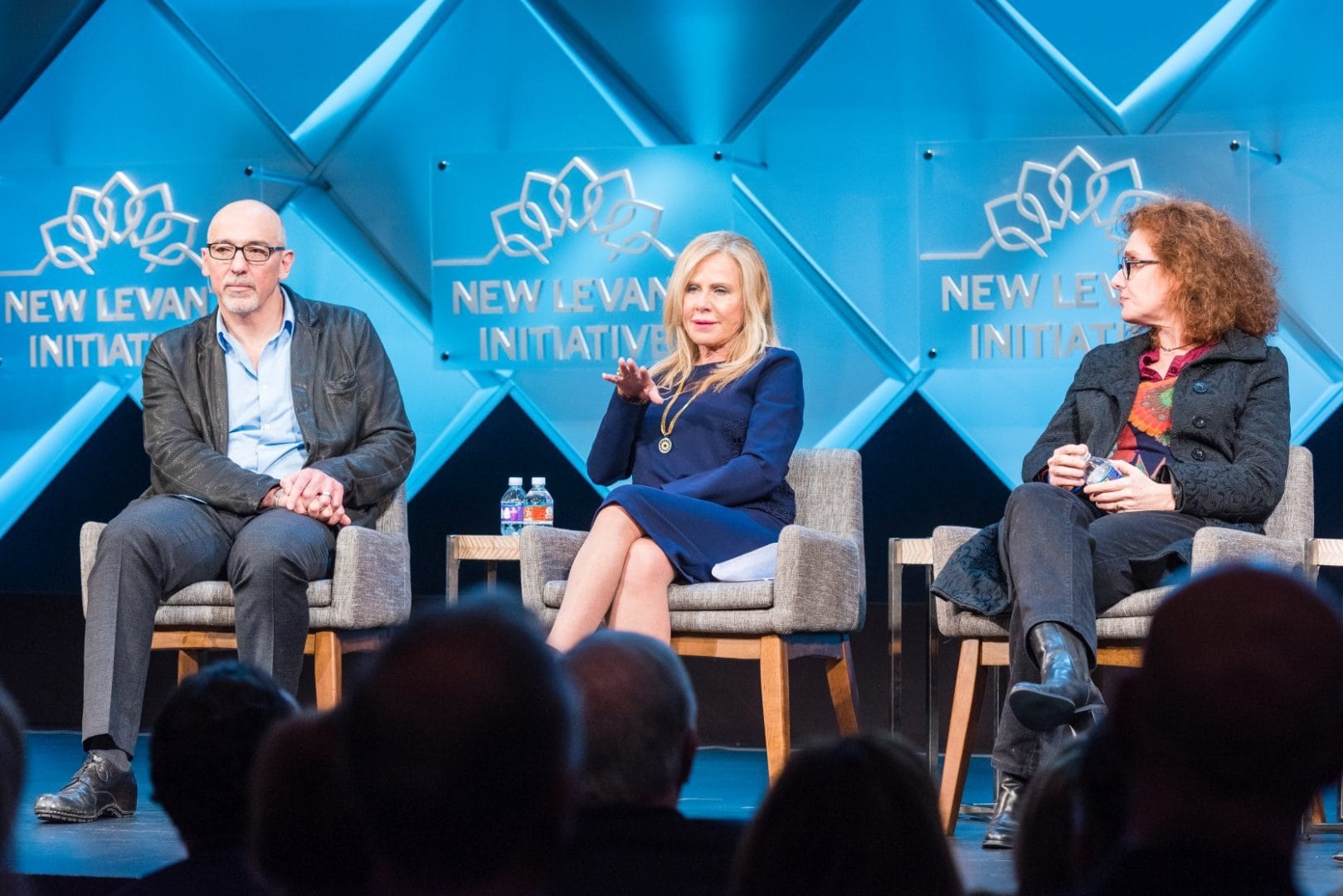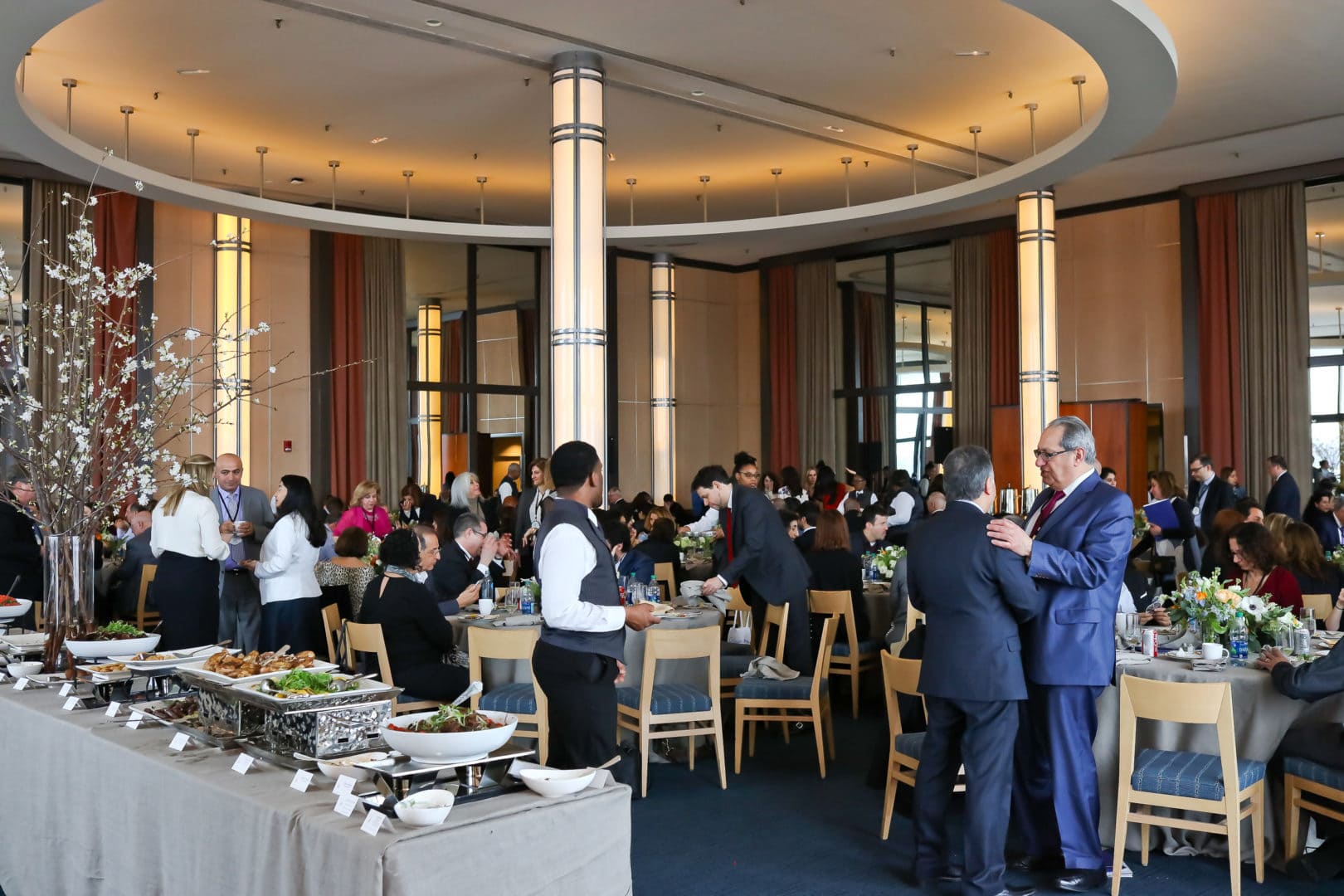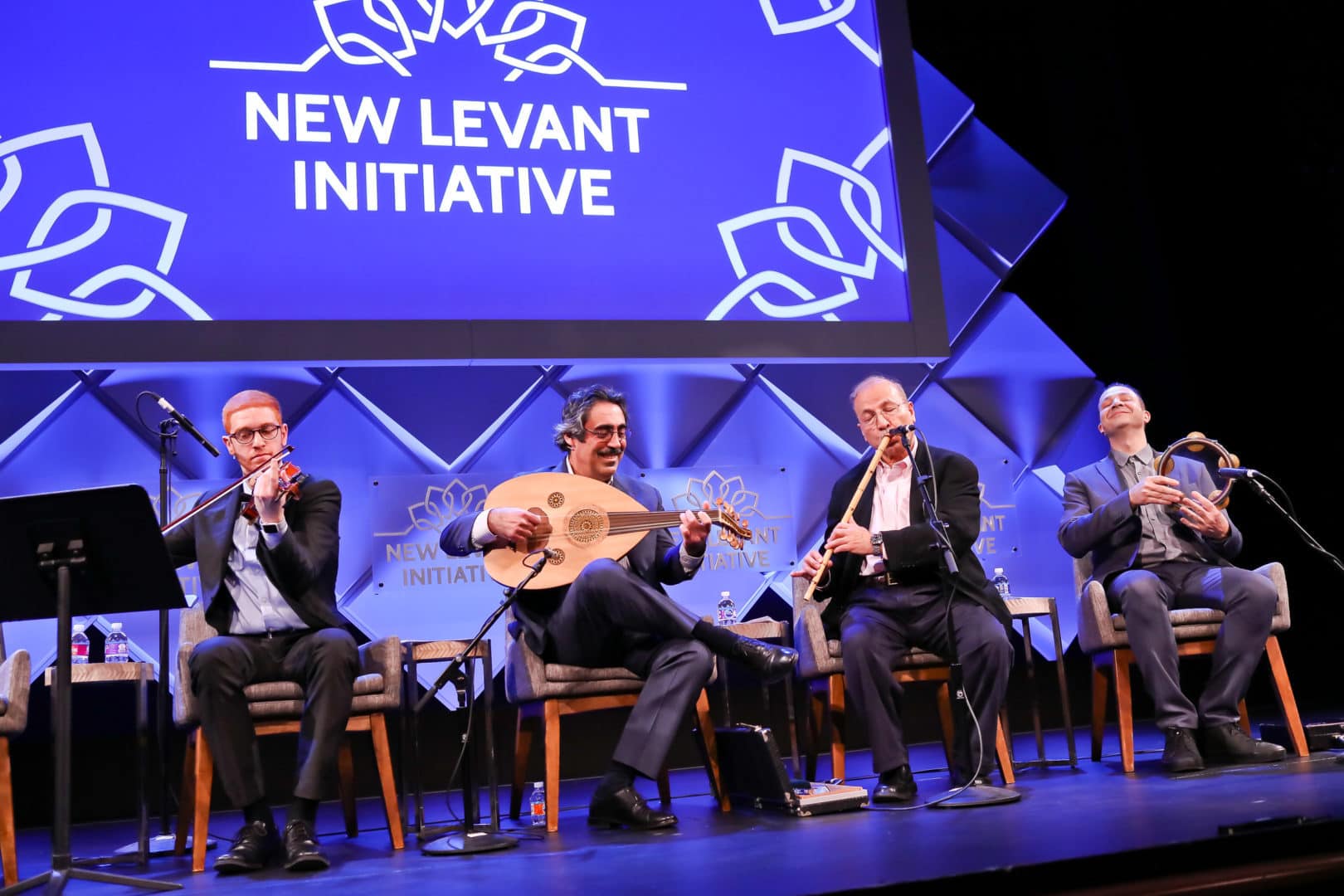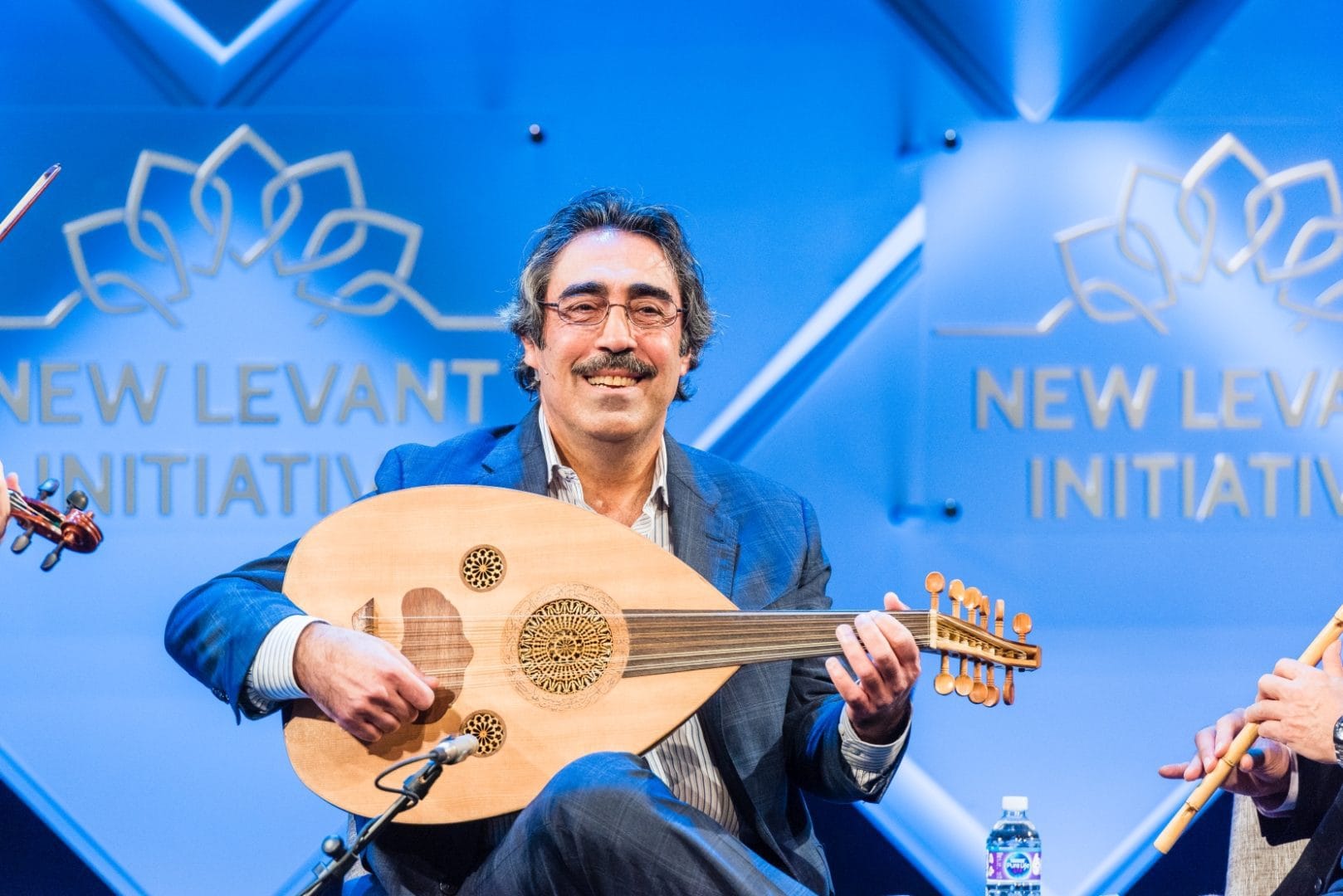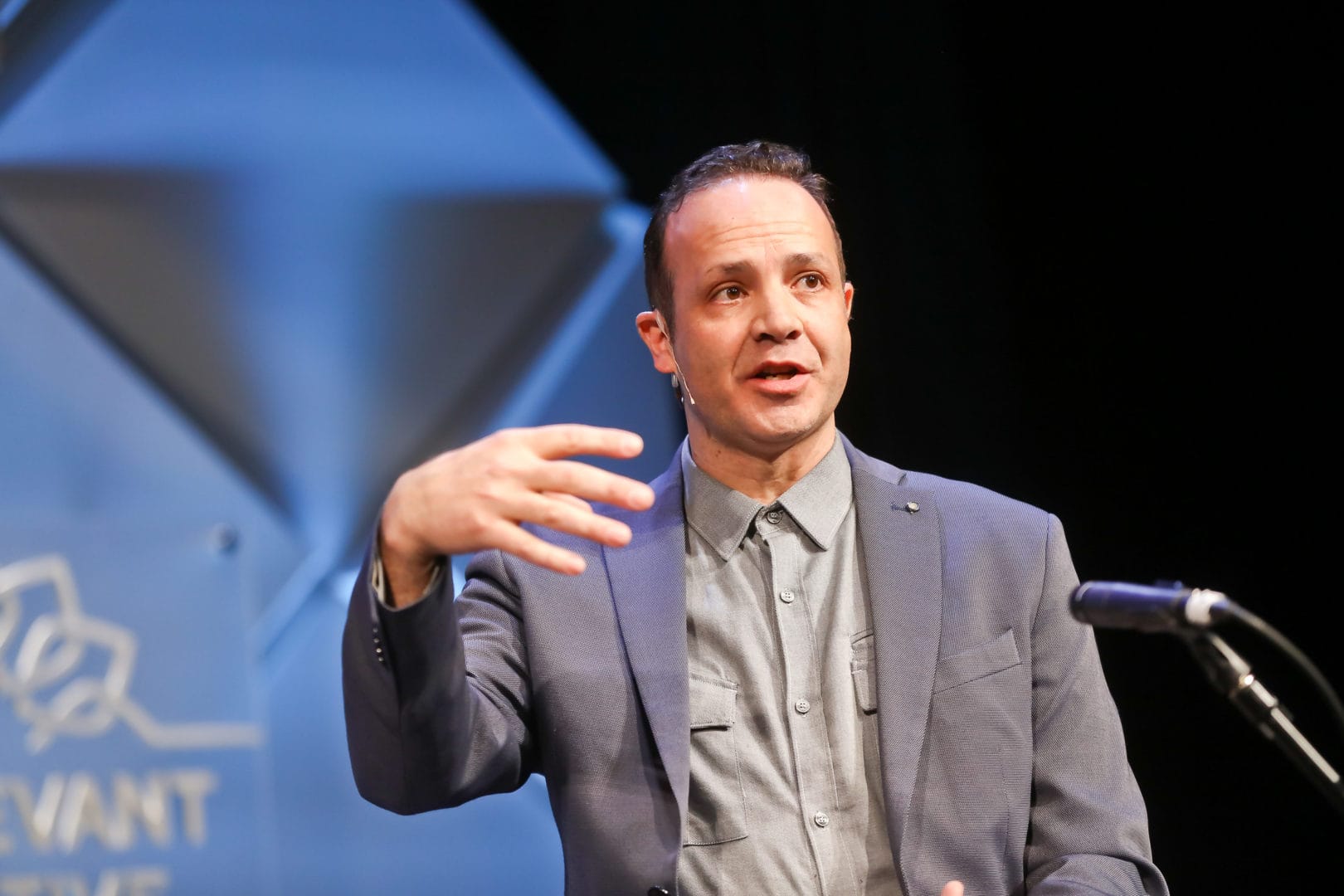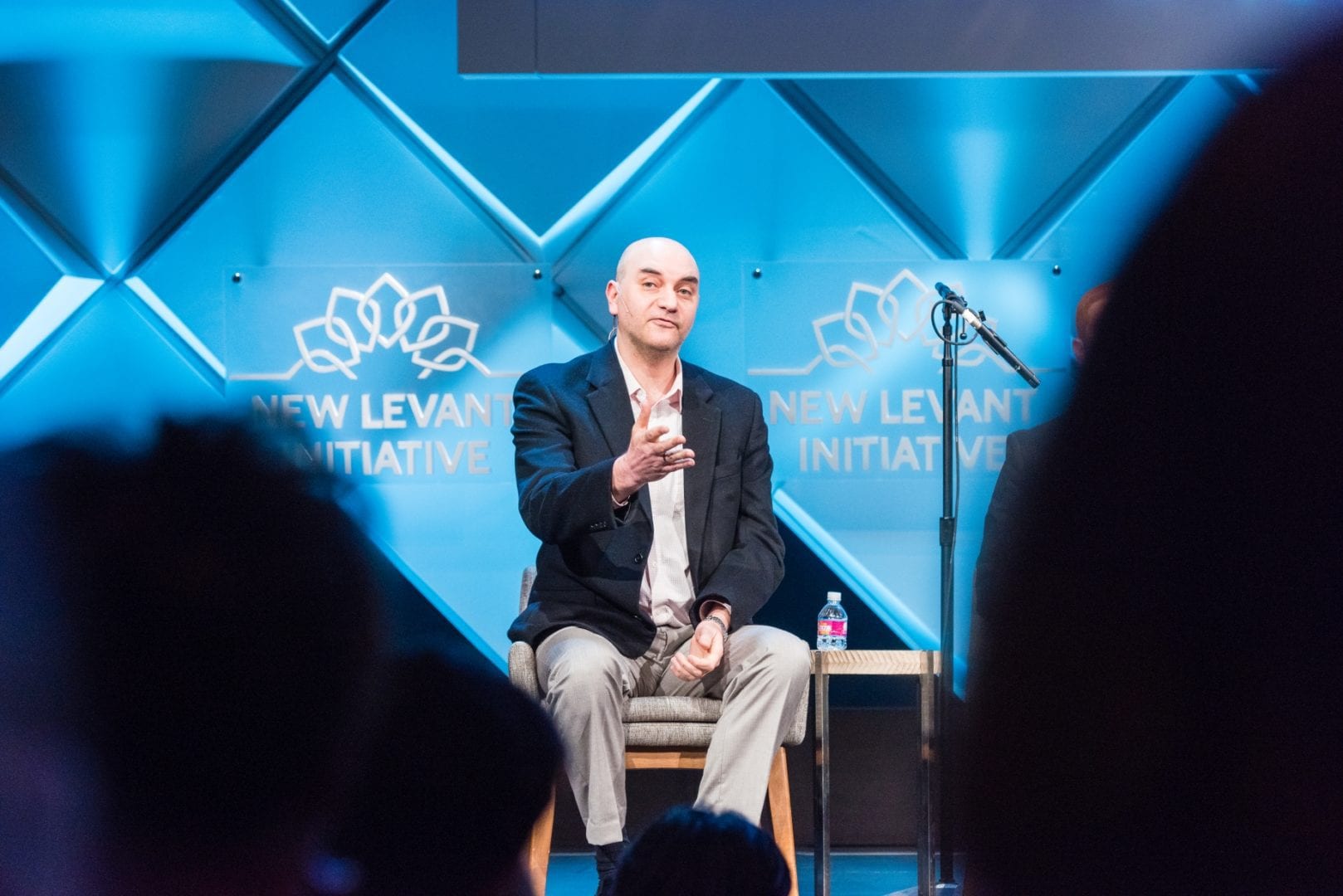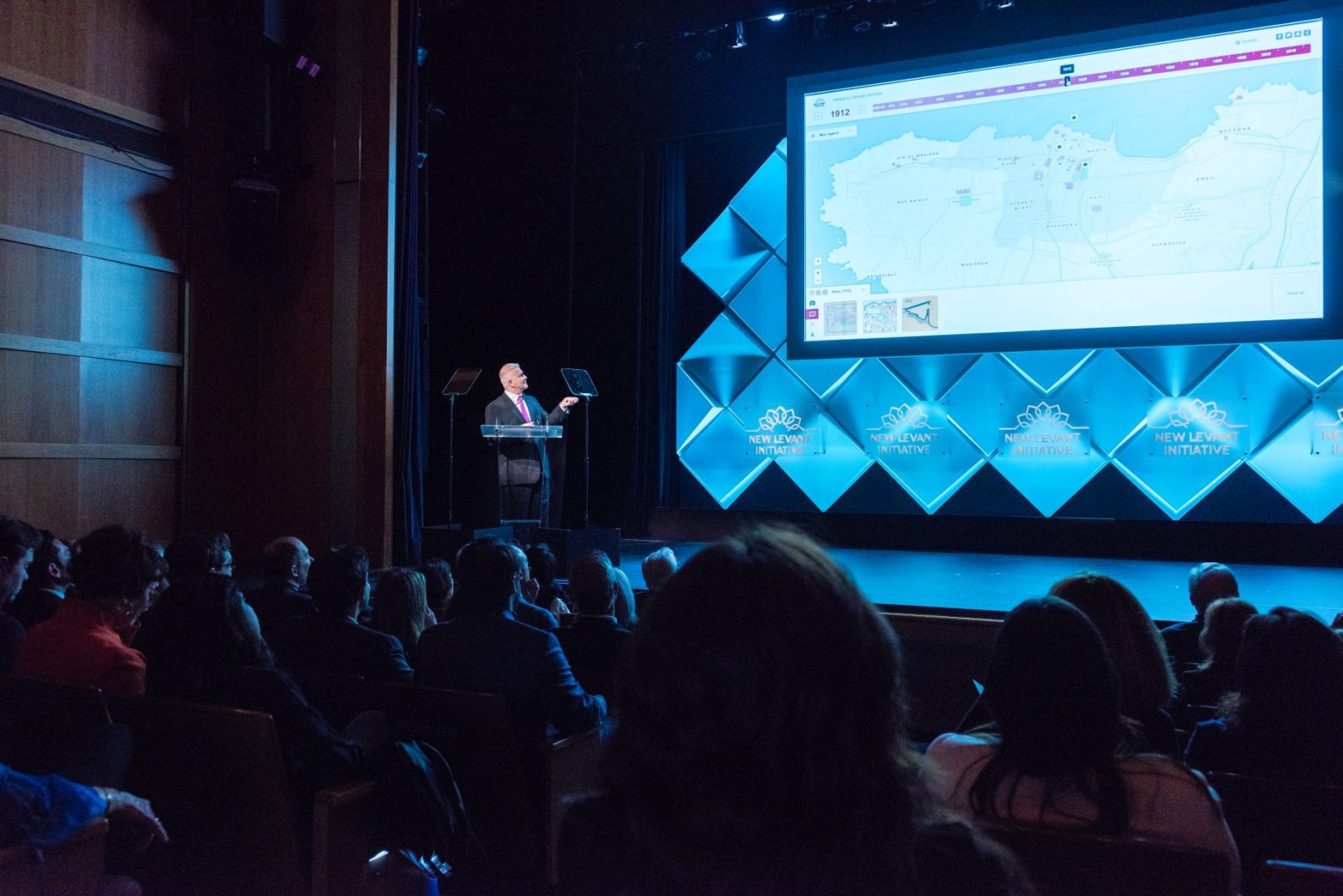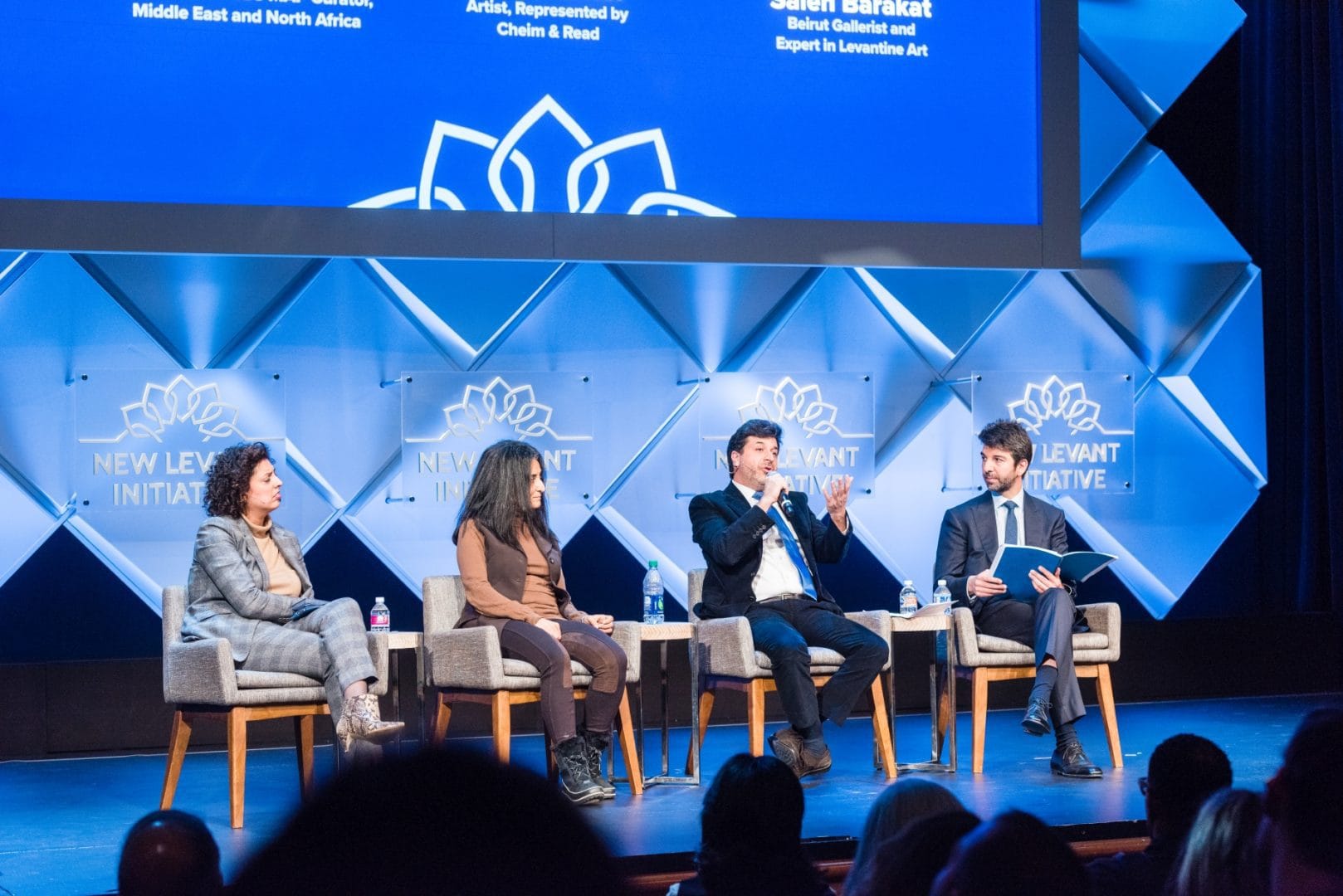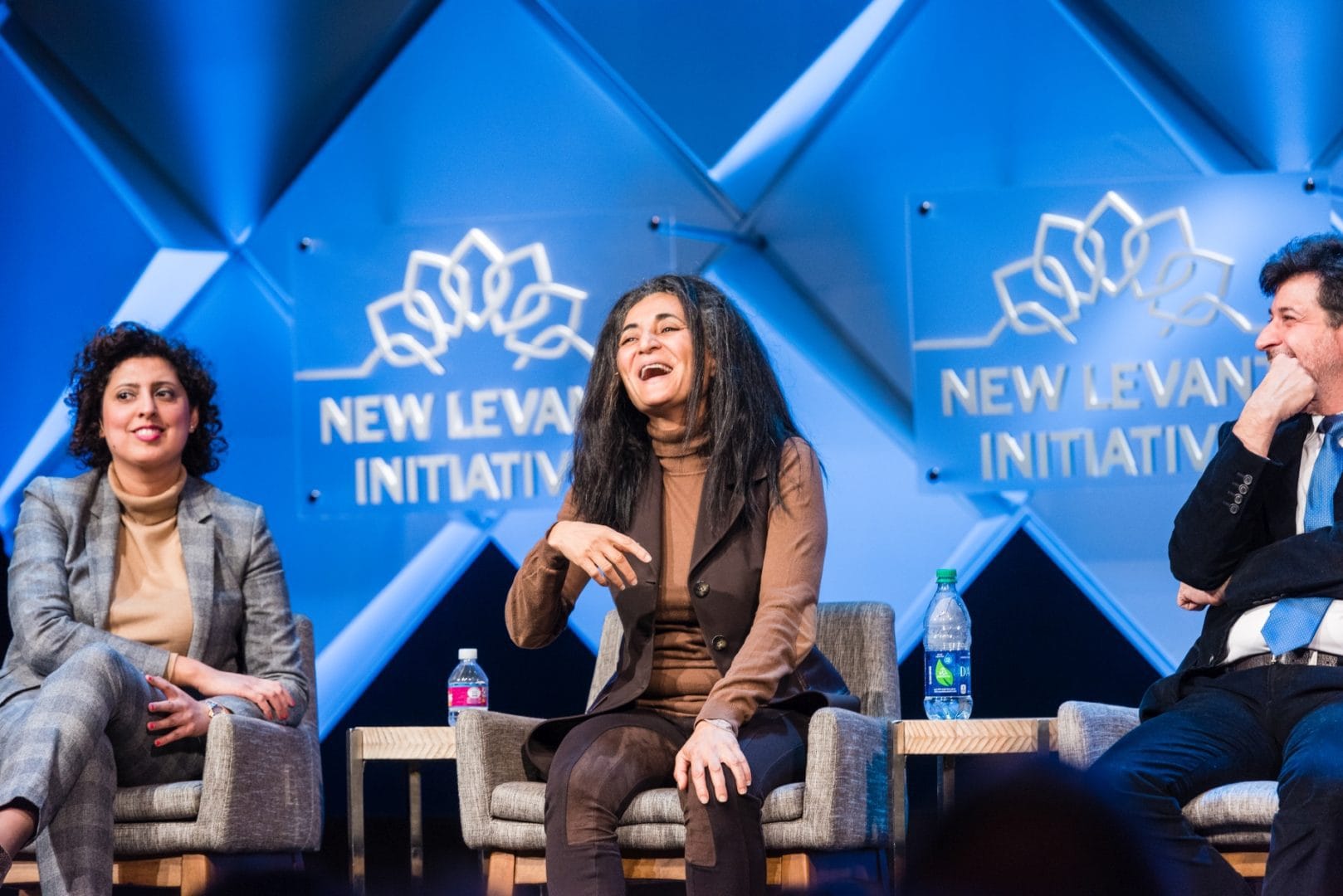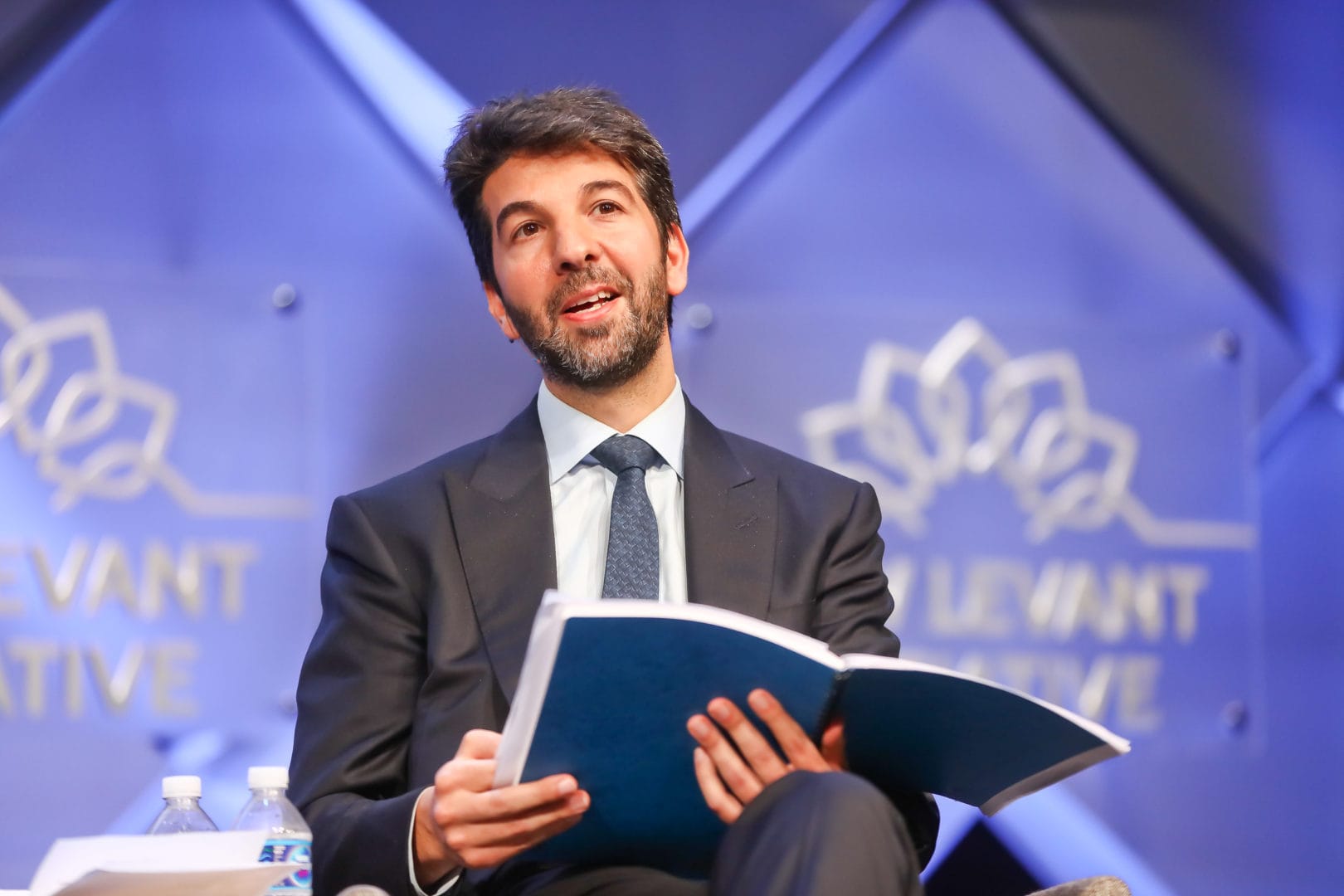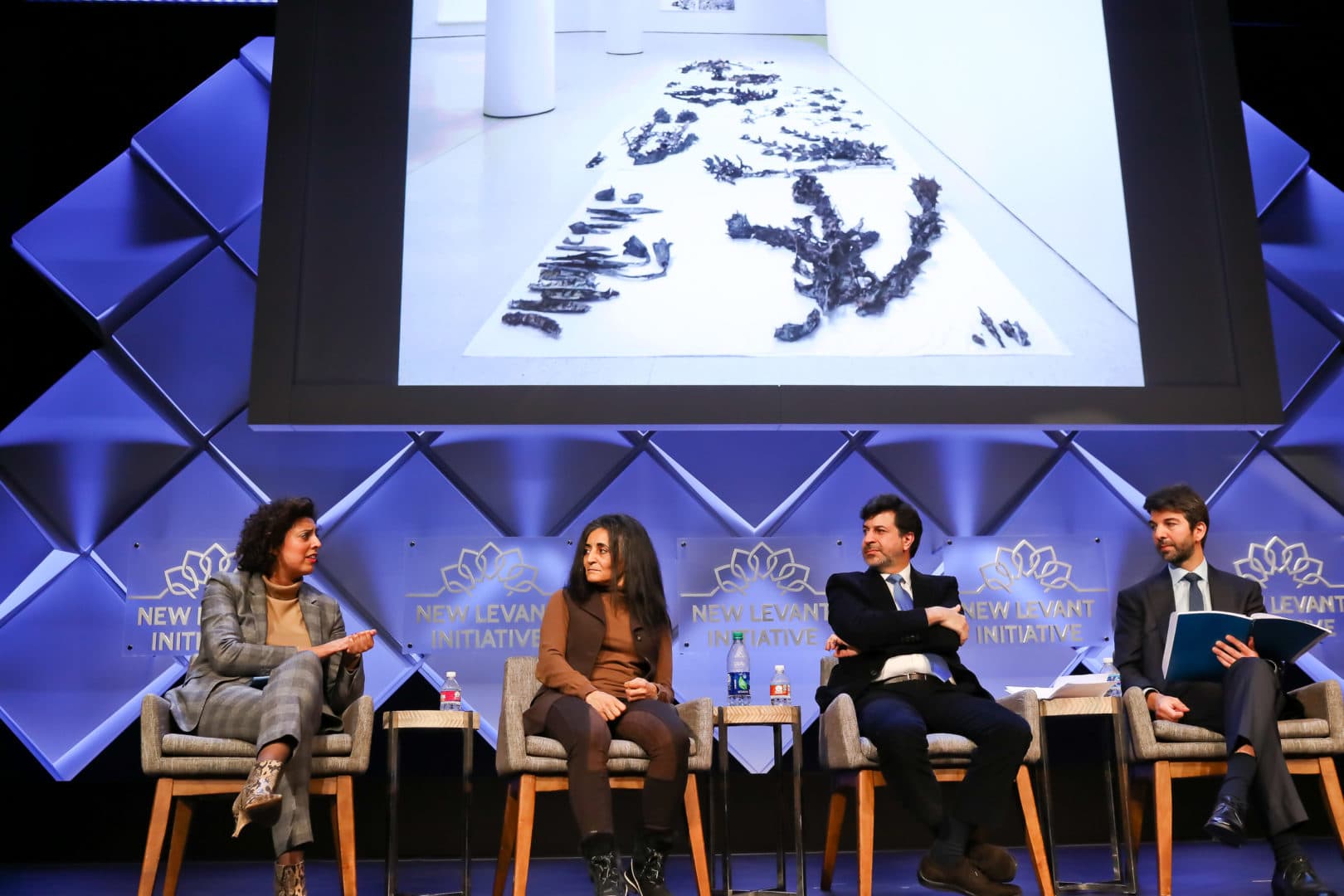Our Inaugural Conference
The New Levant Initiative held its inaugural conference on March 1, 2018, at the John F. Kennedy Center for the Performing Arts in Washington, D.C. We are grateful to all who came and shared the day with us and invite you to continue this journey with family, friends and colleagues.
The conference reflected on the Levantine identity, as captured throughout history, art, architecture, music and cuisine, as well as the history of cosmopolitanism and commerce that enabled this vibrant culture to thrive.
Panelists who share Levantine heritage examined its influence on their careers and lives as well as gave testimony to the uniqueness of the Levantine identity.
The program was followed by an evening concert performance with the original composition, Levantine Symphony N°1, by Ibrahim Maalouf.
-
Highlights from New Levant Initiative Conference 2018
Preview the highlights of NLI’s Inaugural Conference from March 2018, which took place at the John F. Kennedy Center for the Performing Arts in Washington, DC.
-
Levantine Cities Through Space and Time
This discussion centers around the shared design and overall aesthetic of Levantine architecture both from a historical perspective and contemporary architectural designs. It focuses on the role that architecture can play in the construction of a new Levant – the role it has played in the past, the role it plays today, and the role it will play in the future. The panelists explore the concept of the “Levantine city,” and urban design over the course of time.
Panelists:
Amale Andraos, Dean, Graduate School of Architecture, Planning, and Preservation, Columbia University
Rodolphe el-Khoury, Dean, School of Architecture, University of Miami
Hashim Sarkis, Dean, School of Architecture and Planning, Massachusetts Institute of Technology -
The Evolution of Levantine Art
Contemporary artists and experts reflect on the past and present of Levantine art as well as the Levantine identity and how it informs their practice. This panel also addresses the shared artistic heritage of the Levant region and the cities that came to symbolize this cultural integration (Mari, Babylon, Palmyra, Petra, Baalbek, Damascus, Baghdad, Aleppo, Tripoli, Jerusalem). The panel also addresses the Levantine identity as it exists today in modern visual art: the ambiguous relationship between text and image, tradition and modernity, East and West.
Moderator:
Michael Jeha, Managing Director and Deputy Chairman, Christie’s Middle EastPanelists:
Ghada Amer, Artist, represented by Cheim and Read
Saleh Barakat, Beirut gallerist and expert in Levantine art
Sara Raza, Guggenheim UBS MAP Curator, Middle East and North Africa -
An Economic Case for Integration of the Levant
The panel presents the tangible economic benefits of integration for the people and countries of the Levant. The panelists discuss the promising effort at regional integration prior to 2011, and present a vision of an interconnected energy sector that is linked to international markets.
Moderator:
Andrew Parasiliti, Ph.D., Director, Center for Global Risk and Security, RAND CorporationPanelists:
Daniel Egel, Ph.D., Economist, RAND Corporation
Abdallah Al Dardari, Senior Adviser on Reconstruction, The World Bank (Middle East & North Africa)
Sibel Kulaksiz, Senior Country Economist, The World Bank (Middle East & North Africa) -
The Levantine Diet: A Regional Culinary Tradition
This discussion focuses on historical developments and discoveries in Levantine food and cooking methods and how they have had a global influence on cuisine. The panelists also discuss the diverse elements of Levantine cuisine that have come together to create something larger than the sum of its parts.
Panelists:
Poopa Dweck, First generation American Syrian-Jew, cookbook author and authority on the cuisines and customs of Aleppo, Syria
Barbara Massaad, Lebanese-American cookbook author, photographer and TV host
Wassef Haroun, Co-owner of Mama Restaurant Group -
Sounds of the Levant
Simon Shaheen moderates this discussion highlighting the commonality of Levantine music, establishing the shared Levantine identity that crosses borders and brings Levantine people together.
Moderator:
Simon Shaheen, Palestinian-American performer, composer, and Professor at Berklee College of MusicPanelists:
Layth Al Rubaye, Violinist, composer and director of the Arab Music Ensemble at Tufts University
Karim Nagi, Arab musician and folk dancer
A.J. Racy, Ph.D., Performer, composer and Professor of Ethnomusicology at the University of California at Los Angeles
Kareem Roustom, Composer, Professor of the Practice, Tufts University Department of Music -
diverseLevant: A Diachronic and Iconographic Atlas of Coexistence
The goal of diverseLevant, Professor el-Dahdah’s diachronic map created for this conference, is to create an online mapping platform that illustrates the urban evolution of a Levantine city, such as Beirut, over its entire history as well as across its social, cultural, and religious diversity. The project consists of an online cartographic platform that illustrates the urban evolution of Beirut, over its entire history as well as across its social, cultural, and religious diversity. Primary archival sources, such as views of the city, historical maps, archaeological surveys, and architectural projects will be located, in time and space, while their associated visual and geographic data will be integrated across many databases.
Please visit https://www.diverselevant.org/ to interact with the platform.
-
The Past for the Future
Robert Worth, New York Times correspondent and former chief of the New York Times Beirut bureau, interviews Philip Mansel, renowned historian and author of several books on the Ottoman Empire, including Levant: Splendour and Catastrophe on the Mediterranean.
Robert Worth, Journalist
Philip Mansel, Ph.D., Historian and author -
Opening Remarks from Jamal Daniel
New Levant Initiative founder Jamal Daniel opens the inaugural conference.
